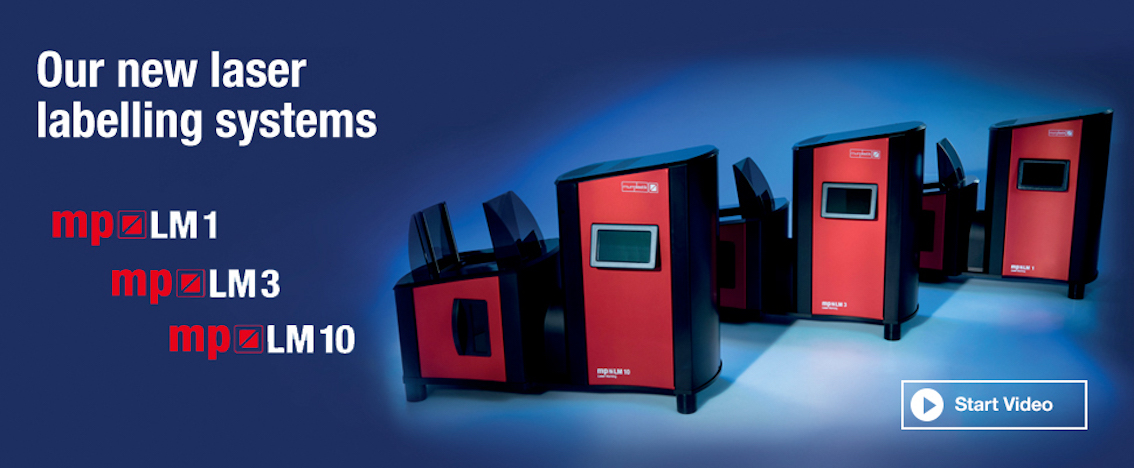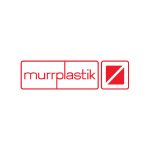Innovations in the industrial labelling market
Murrplastik is a global innovator in the manufacture and supply of injection moulded cable management products and industrial labelling systems. In this article, PIF spoke to Tim Bradbury, National Projects Manager, to hear about the current state of play in industrial labelling technology and what new breakthroughs we can expect over the coming years.
PIF: Hi Tim, what major changes in industrial labelling have you seen over the years?
TB: We still have some of our original equipment out there. We originally started doing industrial labelling with basic plotter systems. Which was basically a pen held in a plotter that would physically describe every character onto a label, using a pen with a special ink inside it. We still do sell that basic mechanical plotter unit. They’re very robust, they’re virtually indestructible and they just keep plodding on (or should that be plotting on?!).
Over the years, we’ve developed the ink more and more, so that we now have a proprietary indelible etching ink. The ink that we use actually eats into the top layer of the polycarbonate label, so after a few minutes it’s completely in there, literally just a few microns deep, and sufficient that you can’t get it off. It’s UV stable and you’d have to abrade that off before the text would disappear.
Because of its very nature it tends to get specified into the automotive industry, machine tools where there are cutting fluids splashing around, and also into food and beverage, and the heating and ventilation industry. We also meet all the specifications for the rail industry.
It’s Murrplastik’s own recipe! It has developed and evolved over the years. We’ve come across different chemicals that may have affected it, which means we’ve had to evolve it and make sure it meets all the modern requirements. It’s not resistant to every single thing on the planet but it’s resistant to anything that could cause it problems.
PIF: How are industrial labelling machines evolving?
TB: There have been developments with inkjet printing and most recently laser. We now do laser systems that are getting faster, smaller and lower in price. They used to be very expensive, around £40,000 to 50,000. We’ve now got laser systems down to around £11,000.
We’ve also just recently launched a new technology inkjet printer. Whereas, typically, most inkjet printers tend to use what’s called piezo technology, we’re now using a thermo-print head that develops a higher ink temperature that forces its volume to expand and then that literally sprays the ink out.
So it’s much more controlled, we use much less solvent and it means we can be more precise with the print quality and also the volume of characters that we can produce. Typically, one cartridge in our new inkjet printer will produce something like around 1.4 million characters.
The size of the machines are getting smaller and smaller and faster and faster. So it’s speed, accuracy, reliability and user-friendliness. They’re all compliant with the latest Windows 10 software too, so we’re positively striding forwards.
PIF: Is there a move towards more environmentally friendly industrial labelling systems?
TB: We can use less solvents in our inks and it’s the solvents that produce the smell and contribute to greenhouse gases. So we’re using considerably less solvents now. That gives us two advantages: it means the ink is less volatile and it also means that we almost have instant drying time now.
Rather than having to wait for the ink to eat into the label, it’s almost instant now because the small amount of solvents in there evaporate really quickly. It keeps the odour down and it also keeps the toxicity of the ink down.
PIF: As an industrial labels manufacturer, is Murrplastik focussed more on selling industrial labelling machines or providing an industrial labels printing service?
TB: We tend to find that the hardware is a means to and end for us. We try to keep the cost of the hardware as low as possible so that the customer becomes self-sufficient. Murrplastik is now the world’s largest supplier of components and wire marking products and we manufacture to suit everybody.
Let’s say the customer has a contract with Siemens and is buying Siemens terminals, which we do and can even do them in the Siemens livery. If he decides a bit later on in his career that he wants to change to another terminal, all he needs to do is go on or website, put in the part number and we’ll automatically cross-reference and advise him on which terminal he now needs to use.
Same machine, same equipment but it fits whatever new component he’s going to use. So we’re very versatile. It doesn’t matter what the application is for, if there’s enough volume we’ll manufacture a completely new label type if the customer requires it.
We’re moving towards smaller, more accurate, more reliable technology. What I know from my own experience after 20-odd years of doing this is that the labelling of anything – whether it’s a machine tool, a control panel or switchboard – is the last thing that they think about.
It’s something that has to be done but as soon as their labelling method fails it can hold up the entire production of a factory. You cannot send that machine out unmarked. You send it out and then you have to send out an engineer to follow-on mark it afterwards, which is very costly.
What we do is, while the customer is using our equipment, we will provide a printing service if a forklift backs over their printer and they can’t print. They can send us the project files and we’ll print them and only charge them for the labels we use. We regularly visit customers to help them with projects and help them to design things.
We also have a range of spare machines that we can use as loan machines. So if a customer gets into trouble or suddenly finds that their volume has increased but they don’t necessarily want to buy a new machine, they can loan an additional machine from us for a short period. It may be that they give us repeat business and eventually they will buy another machine, so it does have an advantage for us.
PIF: Does Murrplastik provide many niche/bespoke industrial labelling solutions?
TB: It’s very few and far between. We try and get everything to a standard format if we can. In eight out of 10 cases, there is a standard label format that will suffice. We do have the capability to help with designs and can laser-cut profiles for customers as examples, and we can go and talk with them and work with them.
Sometimes a label needs to be a specific shape to fit the recess of a product that they want to label or mark. We can work with that customer and we can experiment and do a little bit of prototyping, so we can get it correct within a limited production.
These machines are quite small and compact. There are only a couple of our machines that are bigger than a desktop machine. With regards to marking equipment, we do pen-based equipment, inkjet, thermal transfer, laser and also a full engraving machine. So we cover the entire spectrum of the market really.
PIF: Which industrial labelling systems are becoming less popular and which are set to dominate?
TB: Thermal transfer is beginning to die a bit of a death now. It tends to be much more useful on foil-type labels. Thermal transfer technology is basically for barcode printing. It’s not very robust and is typically a wax-based ribbon that’s heated and melted onto the product.
It has its place; it’s very fast and very cheap. But it’s not robust. We can talk to the customer and suggest a solution, whether it’s thermal transfer, inkjet or laser. But it depends on the application as to what type of equipment we’ll suggest.
I think ultimately laser will become the dominant technology because the cost is falling now. If you’re using an ink-based system, there are the consumables to consider – the cost of refilling the ink, new cartridges and so on. Whereas, with a laser-based system, the laser head has an approximate life expectancy of 20 years.
The only cost you’ve got to worry about there is the ongoing consumables you’re using. But the reliability is fantastic, they can keep going 24/7 non-stop. As the cost of laser comes down, you’ve already got the inherent reliability and it’s 100% stable once you’ve labelled the product.
PIF: Is there a demand for laser printed industrial labels and how do you respond to changing demands?
TB: I think the way forward will be smaller, more compact and cheaper laser. At the moment, we probably sell more inkjet than we do laser but now the price is coming down we’re beginning to see that most buying companies are considering offsetting the cost savings of buying ink cartridges with buying a laser where the return on investment is better.
As the technology gets more established, the price comes down. A good analogy that I use with my customers is that back in the 1970s the very first liquid crystal watches that came about were really expensive and then 10 years later they were free with a gallon of petrol! It’s the way technology moves forward and we just utilise the advancements that we’ve got.
Murrplastik is a global company, so each country will feed back to Germany. We’ll say we’ve got customers asking “if this is possible” or “that’s possible” and then it allows the design team to take a consensus of what’s happening globally. They can see then where’s the best place to focus their next stage of development.
For more information about Murrplastik and their industrial labelling machines and services, visit www.murrplastik-labelling.co.uk.
Get the latest process industry news
Interested in receiving even more industry-leading news from Process Industry Forum delivered directly to your inbox? Then sign up to our free newsletter. Bringing you the latest news, trends, innovations and opinion from across the process industry, our exclusive newsletter gives you all the industry insights of the moment in one, easy-to-digest bulletin. Stay ahead of the competition with regular process industry news instalments from PIF.


